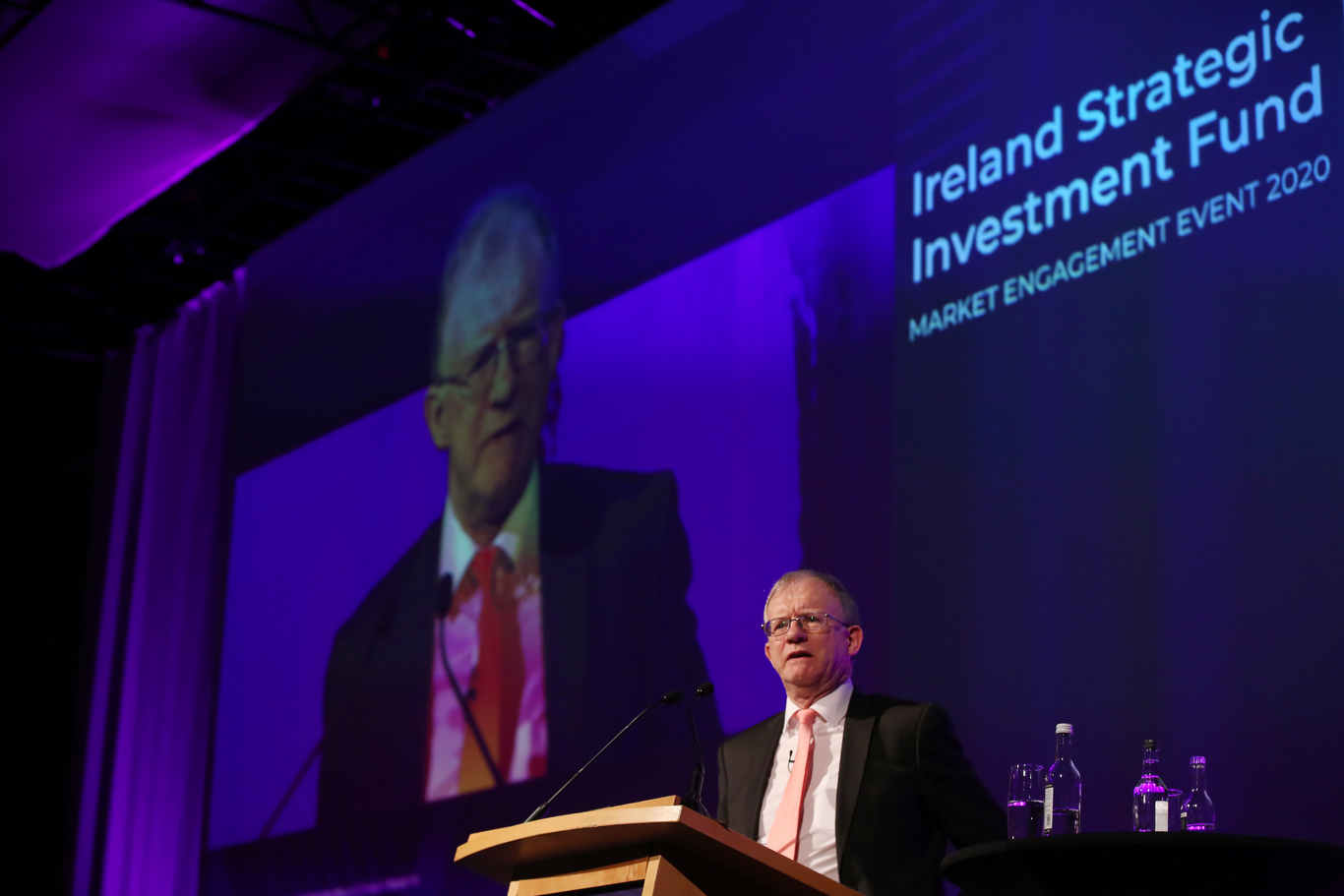Your crash course in... Ireland's investment fund and its sustainable ambitions
ISIF shifted its investment strategy last year to target areas such as housing and climate change.
THERE WAS SOMETHING in the air at the Ireland Strategic Investment Fund’s (ISIF’s) annual market engagement meeting this week, other than Phil Collins’ ‘In the Air Tonight,’ which greeted attendees over the PA system.
If 2019 was the year that capitalism tried to make itself “cuddly” in response to global, existential threats like climate change, this was well reflected in the tone and content of the event in Dublin’s Convention Centre where the theme was “sustainability.”
ISIF, the sovereign development fund which is managed and controlled by the state’s National Treasury Management Agency, invests under a mandate to support economic activity and employment, in addition to delivering commercial returns. Some of the coterie of Irish business leaders that have already benefited from ISIF investments were in attendance.
Of special interest to attendees was the keynote speech by David Blood, the former head of Goldman Sachs Asset Management, who co-founded ‘sustainable’ investment company Generation Investment with former US vice president Al Gore in 2004.
According to the National Treasury Management Agency’s (NTMA’s) 2018 annual report, Generation manages 3% of ISIF’s global investment portfolio, valued at around €205 million.
The most pressing item on the agenda, however, was an update on how ISIF’s Irish and global investment portfolios have fared.
How is the fund doing?
Six years since the government carved out €7.1 billion of taxpayers’ money from the national pension reserve to establish ISIF, the fund has, according to its own figures, increased in value by €1 billion through its global and Irish investment portfolios.
Speaking at its market engagement meeting on Wednesday, Eugene O’Callaghan, the director of ISIF, said that the fund saw a total investment return of 5.2% in 2019 with its Irish portfolio gaining 5.3% and its global portfolio improving by 5.5%.
This means that the Irish wing has enjoyed an annualised return of 6.8% since 2014, while the global one has lagged at 1.7%.
Why such disparity between the two?
O’Callaghan told reporters that “while people think of global portfolios, often as being in equity markets, ours is a very low risk, quite near-term global portfolio. And the purpose of the global portfolio is to provide cash for the Irish portfolio as that cash is needed over time.”
He said it comprises “quite a lot of cash and short-dated bonds, and some elements then of equities and, and real assets.”
“So we’re actually quite happy with the 1.7% per annum,” O’Callaghan said.
ISIF is also in the process of shifting around €1.3 billion from its global investment arm to the Irish one and last year, the government hived off about €1.5 billion from the former for the state’s ‘rainy day fund.’
What about the Irish fund?
ISIF said that so far, it has committed around €4.6 billion to Irish businesses and projects through a mixture of debt and equity, which has attracted a further €8.6 billion from private capital.
It counts the likes of Mark Cummins and Charles Bibby’s tech retail outfit Pointy – sold to Google recently for €100 million – among its success stories.
Asked whether there are enough indigenous businesses worth investing in, given the volume of foreign and domestic capital sloshing around the market these days, O’Callaghan told Fora that the Irish business pipeline is “as interesting as it’s ever been”.
He said that the signals from Silicon Valley Bank, with which ISIF has a “strategic partnership,” have been very positive and that they are seeing “plenty of opportunities” here.
What’s all this about ‘sustainability?’
Last year, the fund shifted its investment strategy to focus on five key areas, including housing, regional development and the most pressing global issue of the hour, climate change.
According to its figures for 2019, ISIF has committed around €350 million to renewable energy companies and forestry projects over the past five years, with plans to invest a further €500 million over the next half-decade.
This includes last year’s €34 million investment in four energy storage projects, including a €10m punt on London-based Gore Street Capital, which has assets in Wexford and Kildare.
In his speech opening the event, O’Callaghan explained, “the core concept underlying and our approach to sustainability is around making sure that environmental, social, and governance factors are taken into account in all of our investment decision making”.
“We’re increasingly embedding those considerations into our investment processes,” he said.
Get our Daily Briefing with the morning’s most important headlines for innovative Irish businesses.






